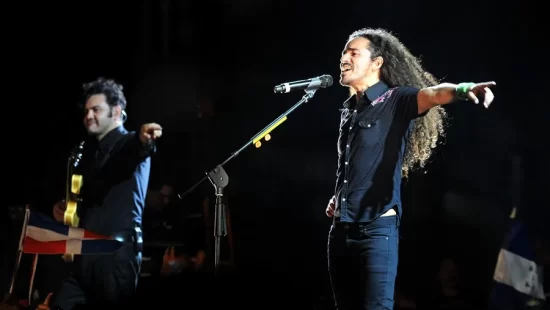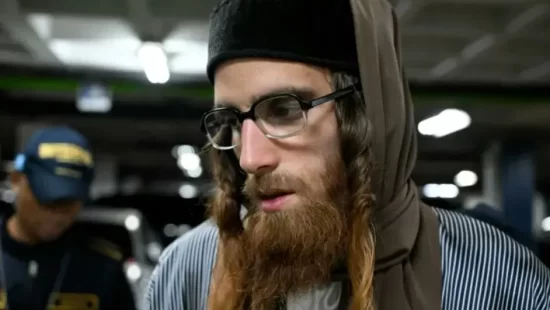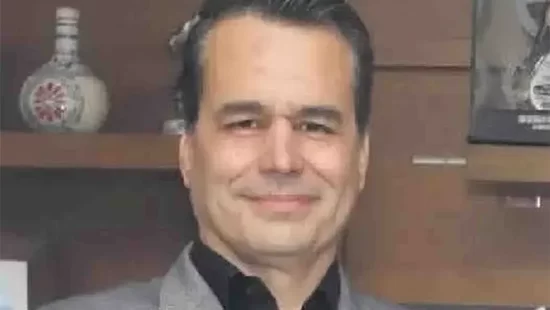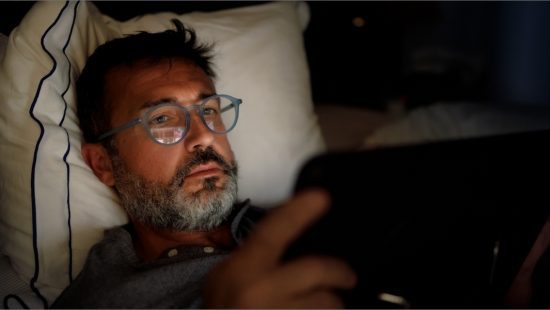Food distribution.
Mando is part of one of the most active Latino organizations in the community. Very observant of the issues impacting the people, at times he acts like a watchdog—commenting, criticizing, and proposing ideas. Since the start of the immigration raids, Highland Park NELA has been very active, spreading information, educating Latinos about their rights, and organizing campaigns to support immigrants who have lost their income due to ICE raids.
“It’s time to fight, to unite, no matter our differences. This struggle belongs to all of us, and we all have to participate to move forward,” says Mando, who prefers not to share his last name or show his face. “ICE is everywhere; they write everything down.”
The immigration operations triggered the same reaction in this activist as in most of the Latino community. “This is something new, the strategy is new, we’re learning day by day. Our effort changes day by day and will last as long as it needs to.”
This movement has left him with no doubts that people want to help and move forward.
“I’ve seen people’s desire to help. When we ask the community for help, they always respond. That’s been the case with street vendors—we’re helping them with food, with whatever we can. They can’t go out on the streets, and together we can support them,” he says.
Mando sees a strong community, getting stronger and ready to keep fighting.
“I don’t see just one group helping, I see many organizations working in their areas, many community leaders, many businesses… we don’t have just one leader or one organization. We are several, and that’s a good thing. Those watching us don’t even know where to begin,” he says with conviction.
To him, communication through social media is working, but not the communication between city authorities and residents.
“To give you an example, when the troops and federal agents arrived at MacArthur Park yesterday, it was very early in the morning, but there wasn’t a single police officer. It seems unbelievable that the LAPD didn’t know. If there were better communication, that information could have been passed to the community so they’d be prepared. We need public officials to be more active in these times—to be out on the streets when they’re needed, to see what the community lacks and what they can provide. They can’t disappear,” he adds. “It seems like they only show up for photo opportunities.”
Mando has had his differences with some public officials, especially with District 1 Councilmember Eunisses Hernández and District 14 Councilmember Ysabel Jurado.
“I’ve sent them texts. I’ve told them I’m willing to collaborate with them. We need to set aside our differences. Unfortunately, I haven’t received a response,” he says.
He believes the community must prepare for a long period of ICE attacks.
“At some point, it has to slow down or end. I know many agents are already frustrated, tired, just like the community. It’s a two-sided effect. It can’t last forever. We have to think outside the box and propose different solutions,” he says.
Like everyone, Mando also feels the emotional and physical toll of what’s happening.
“Some days are very intense. I try to take care of my mental health. Social media activity is intense. There are times I try to disconnect. I focus on my physical well-being—eating well, sleeping well… I know that the next day, I’ll be just like any other Latino. ICE could grab me at any moment, regardless of whether I have a passport or ID. They take everyone, and they don’t respect the law. I try not to walk on the streets, not to walk my dog—these are precautions we all have to take,” he adds.
However, he doesn’t consider giving up or stepping away.
“We’ll keep going, putting in our effort, helping wherever we can. Hopefully, we’ll come out stronger,” he concludes.








